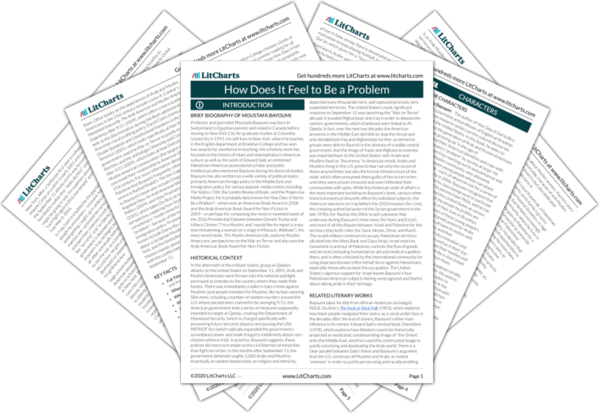It is also telling that Sami continues to think of Arab Muslims as “my people,” even though he is Christian, while his superiors think this religious difference should be enough to make him consider them “other;” they think in terms of religion, while Sami thinks in terms of ethnicity, and (as Bayoumi argued in the preface) popular representations of Arabs and Muslims tend to merge the two, combining them into the image of anti-American violence. Similarly, Sami comes to feel that he is “less of an American” for rejecting his orders based on his conscience, which further suggests that (one form of) the concept of “Americanness” is used to secure people’s uncritical loyalty to the government’s interests. This contrasts with Bayoumi’s vision of “Americanness” as social inclusivity.
